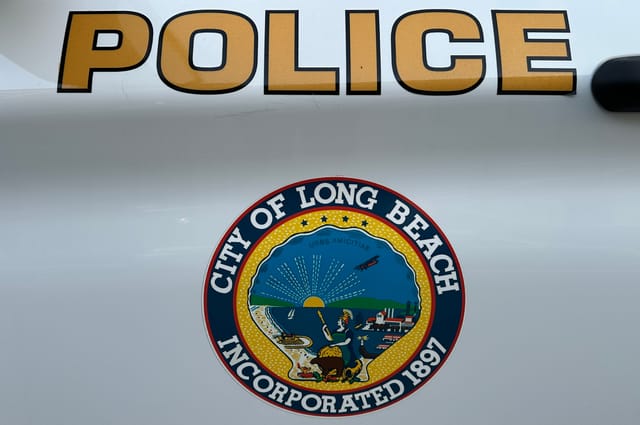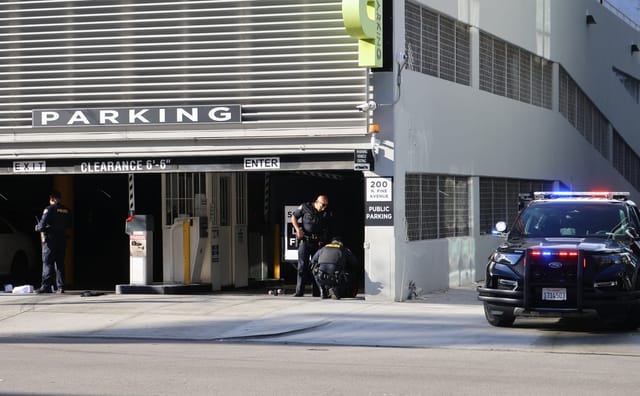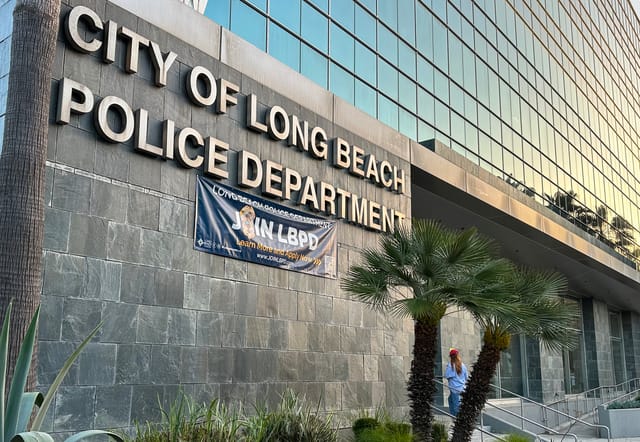Residents denounce systemic racism during rally at Long Beach City Hall
A new coalition of activists is demanding Long Beach officials reform what's described as long-standing discrimination against Black city employees.
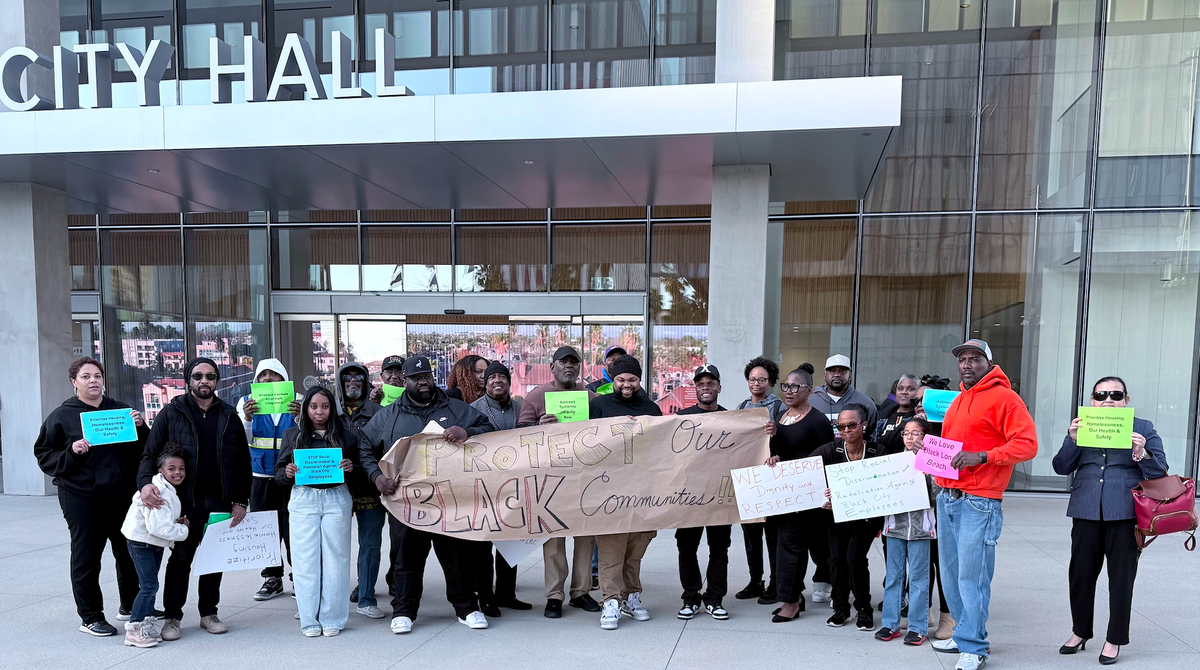
More than 20 residents gathered at Long Beach City Hall Tuesday to demand systemic changes from city officials. The activists united under a new coalition aimed at addressing what they describe as the city's deeply rooted, long-standing anti-Blackness.
The Long Beach Against Anti-Blackness Coalition (LBAABC), founded by Anthony Holmes, seeks to confront discrimination and retaliation in the workplace and beyond. Holmes, an employee with Long Beach Refuse Collection, shared his experiences of workplace discrimination during an appearance on "The Jackie Rae Show" in October. He emphasized his determination to ensure that the next generation of Black residents does not face similar employment challenges.
"I want the Anthony Holmes Act," he said, explaining that his proposed legislation would establish a department dedicated to supporting Black employees. This department would provide a platform for grievances to be heard, offer guidance and propose solutions ranging from policy changes to legal action against discrimination.
Over the last several weeks, Holmes has worked to make that vision a reality, bringing several community members and leaders together to form the LBAABC.
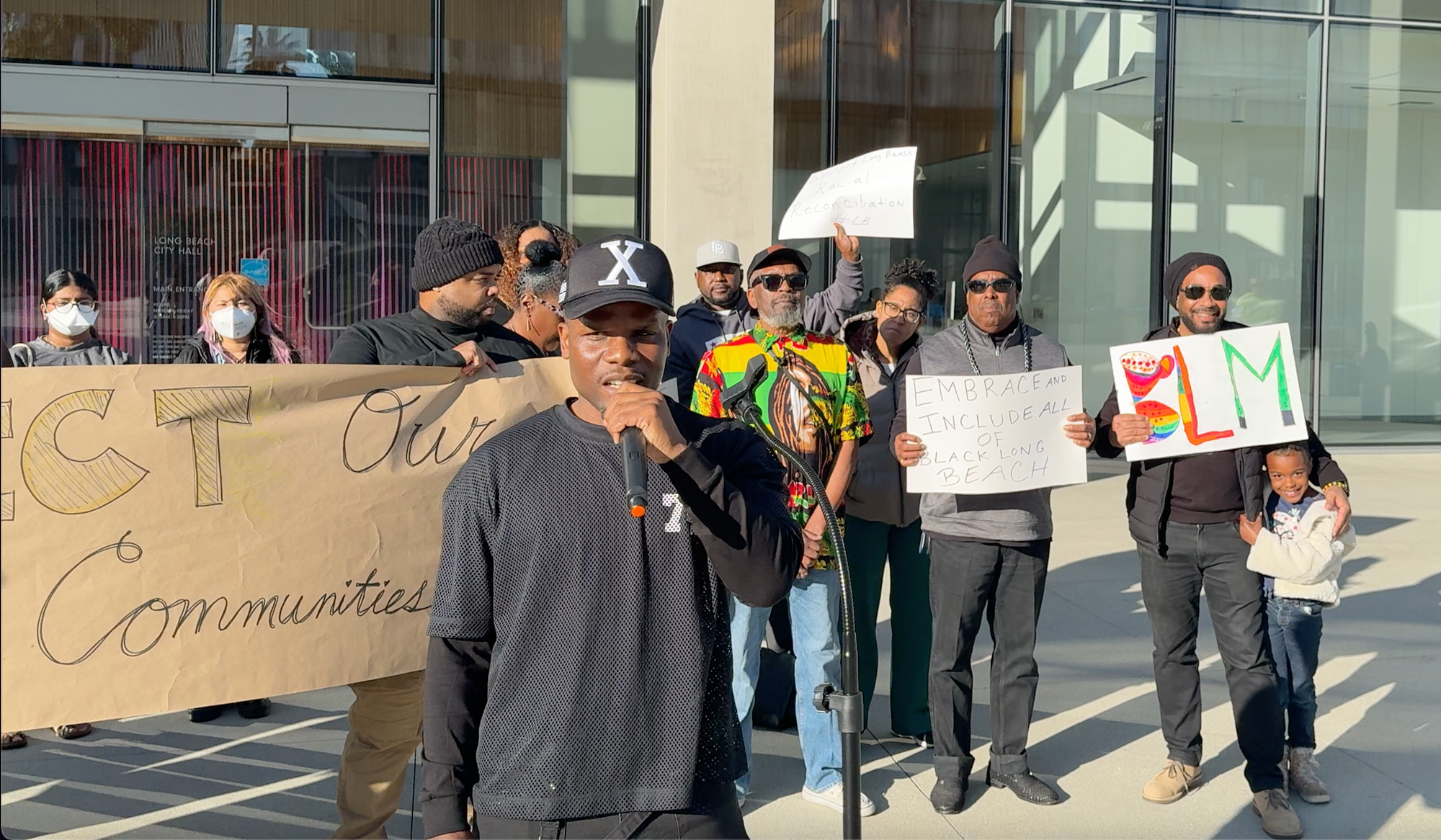
After several meetings, the coalition evolved and expanded its mission to address housing discrimination and empower Black youth.
Ahead of Tuesday's City Council meeting, LBAABC held its first press conference, with several attendees sharing personal stories of racism and discrimination in Long Beach. Among them was Long Beach native Marquise Anderson, who left the city in 2005 to attend college in San Diego, seeking refuge from the gang violence and anti-Blackness he faced on the Long Beach's east side.
"For me, it was housing discrimination and segregation," Anderson said. "I spent much of my high school years houseless, which led to serious mental health issues for my mother and I."
Anderson said he joined the movement because he sees this generation having many of the same struggles. "Far too many young Black folks end up trapped in cycles of violence and are adversely affected by PTSD, premature death and incarceration," he said.
A 2023 study by the Public Policy Institute of California supports Anderson's claims, showing that Black men and women comprised 28% and 23% of the state's prison population, respectively, while representing just 6% of the adult population.
Similarly, Catalyst California found that city council districts with the highest concentrations of people of color in Long Beach—Districts 1, 6, and 7—experienced the highest stop rates by law enforcement.
Cathy Snuggs, who served the city for over a decade in roles ranging from community organizer to violence prevention coordinator, also spoke Tuesday. She said she believes her 2023 termination was discriminatory and harmed the youth benefiting from programs she had developed.
"Despite my track record of success and unwavering service to this community, I stand here today to shed light on systemic racism, toxic workplace culture and retaliation," Snuggs said.
Snuggs highlighted the lack of Black representation in various city departments, despite Long Beach's commitment to diversity and equity initiatives stemming from its Racial Reconciliation Framework, which the city started developing in 2020 following the murder of George Floyd in Minneapolis by white police officers.
"There were no Black employees in fatherhood programs, no Black preservation providers, no Black receptionists and no Black staff in violence prevention or the Office of Youth Development," Snuggs said.
Dana Nickerson, a representative from the Long Beach Black Worker Center, echoed Snuggs' concerns. "We are here because justice, safety and wellness for Black residents of Long Beach is not an abstract concept. They are our rights," she said.
Nickerson also referenced the city's Framework of Reconciliation. "That framework is not just words on paper; it's a promise," she said.
During the City Council meeting's public comment period, Nickerson urged the council members to honor the commitments outlined in the Racial Reconciliation Framework and to partner with the Black Worker Center to address the 11% unemployment rate among Black residents, who comprise 13% of Long Beach's population.
In response, Mayor Rex Richardson encouraged Nickerson to connect with the city's workforce department to discuss potential collaborations.
Holmes also spoke during public comment and presented a list of demands, including the official recognition of Pan-African cultural heritage through the naming and celebration of Pan-Africa Town.
He also called for investments in education, particularly in economics and business, and efforts to promote livable and healthy conditions for the Black community.
Holmes concluded by sharing a conversation he said he shared with Richardson on Aug. 9. According to Holmes, he confronted Richardson about perceptions within the Black community that the mayor was indifferent to their concerns.
Holmes alleges Richardson responded, saying, "Fuck them [N-words], they didn't help me get here."
When Holmes was done, Richardson laughed and said, "That concludes public comment."
Richardson's office did not immediately respond to a request for comment on Holmes' assertion.
Following Tuesday's meeting, Holmes described Tuesday's demonstration as just the beginning.
"The LBAABC is committed to holding the City Council accountable and addressing the needs of the Black community," Holmes said.
For more information about Holmes and the LBAABC, follow Holmes on Instagram.
We need your support.
Subcribe to the Watchdog today.
The Long Beach Watchdog is owned by journalists, and paid for by readers like you. If independent, local reporting like the story you just read is important to you, support our work by becoming a subscriber.


